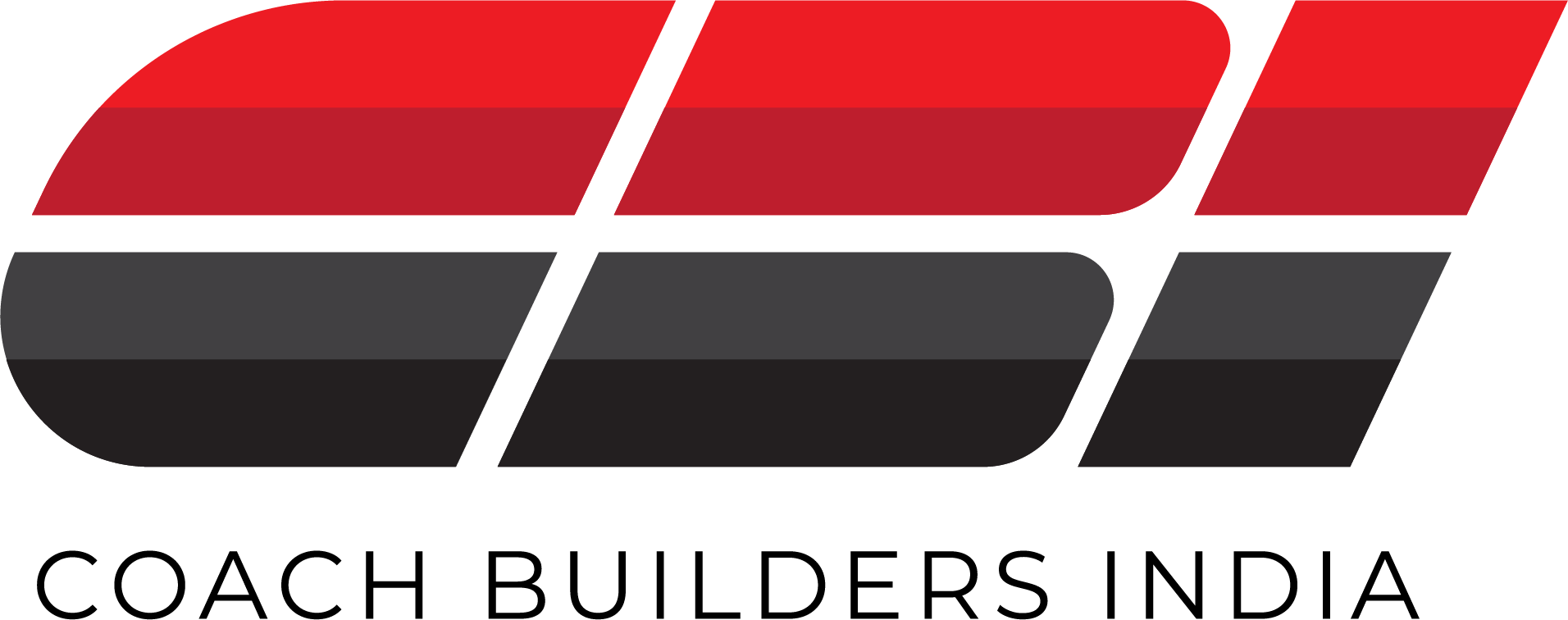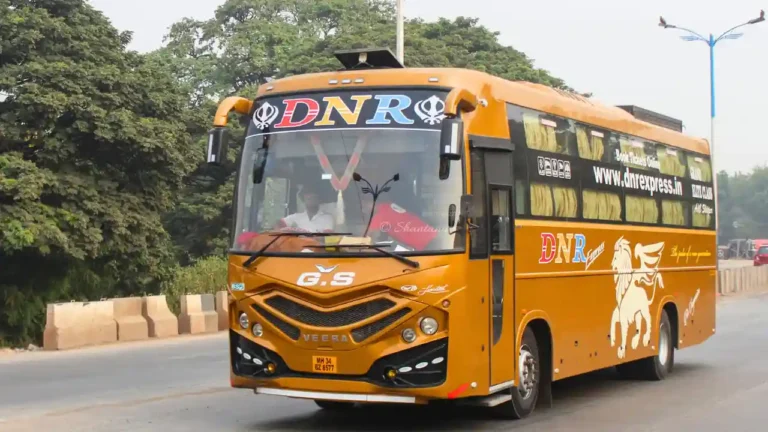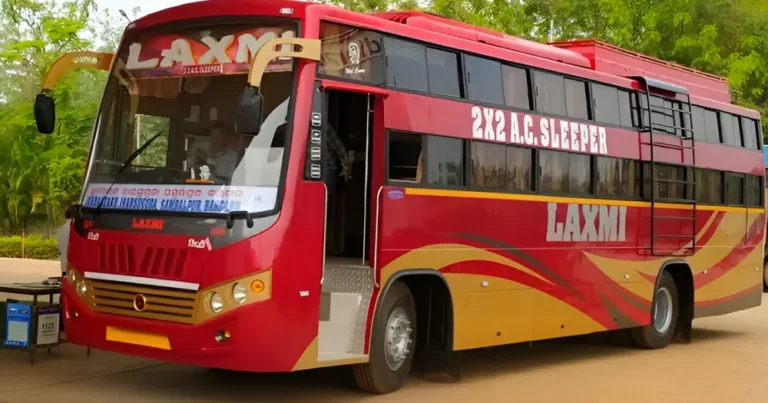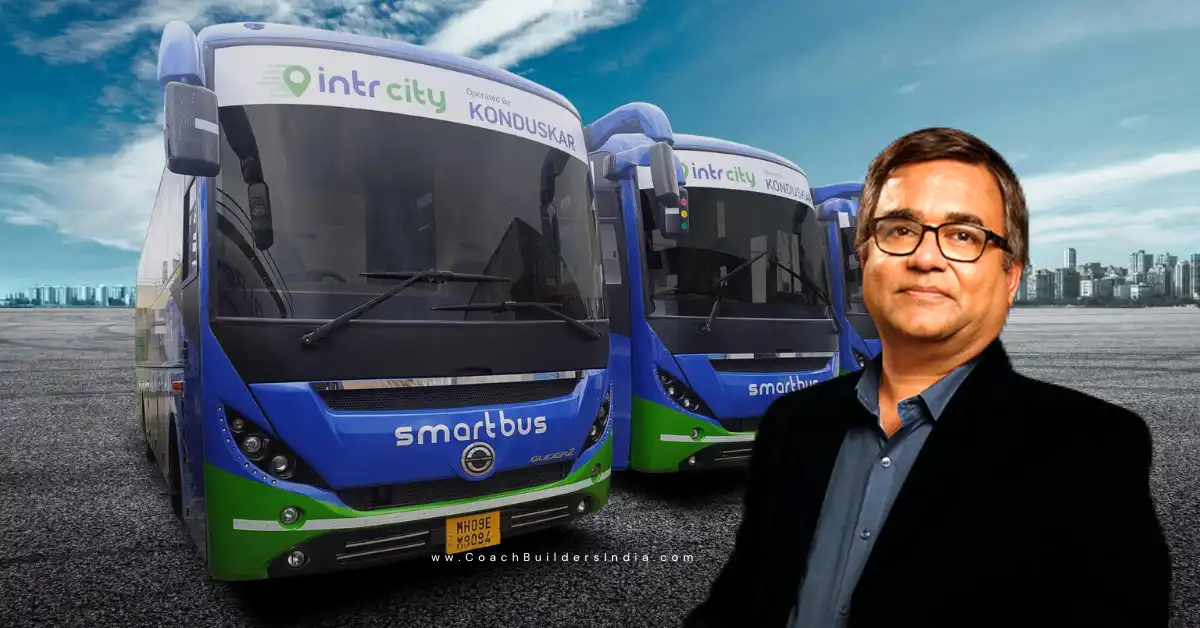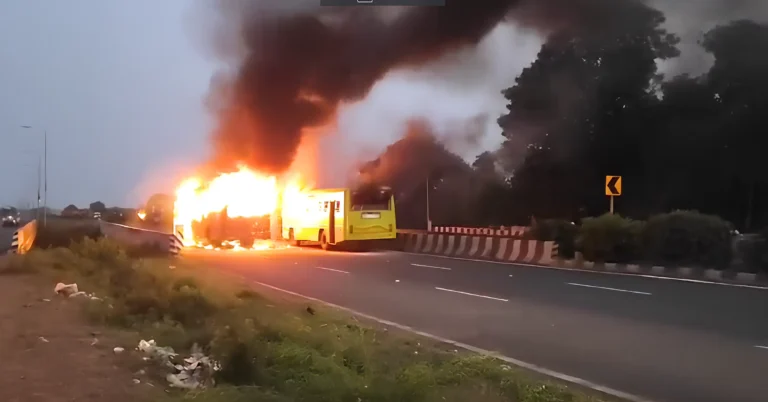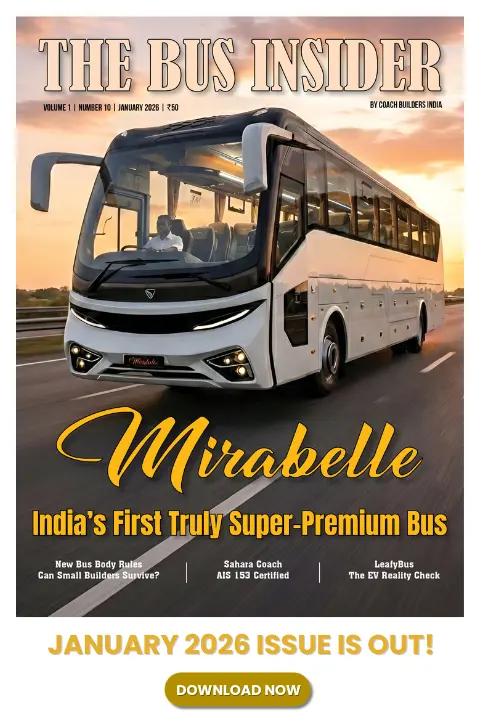The Future of the Bus Industry is Tech & Smart Strategy Says Abhijeet Konduskar, CEO Konduskar Travels
Bus operator interview: Abhijeet Konduskar highlights how technological innovation has played a key role in keeping his company ahead in an ever-more competitive industry.

For nearly three decades, Konduskar Travels Pvt. Ltd., headquartered in Kolhapur, has been a trusted name in the intercity transport sector. Founded in 1994, the company began as a modest operation and has since grown into one of Maharashtra’s leading private bus operators.
With a fleet of 84 buses and 112 operational routes, Konduskar Travels serves 6 states—Maharashtra, Telangana, Karnataka, Goa, Uttar Pradesh, and Gujarat. The company currently employs 200 professionals, all committed to delivering exceptional service and embracing innovative technology to stay ahead in a dynamic industry.
At the helm of this thriving legacy is Abhijeet Konduskar, CEO of Konduskar Travels, whose leadership has guided the business through the industry’s transformation.
From the days of manual ticketing and word-of-mouth marketing to the integration of real-time analytics, GPS tracking, and AI-driven fleet management, Abhijeet has continually adapted to industry changes while maintaining a sharp focus on customer satisfaction.
His deep expertise in market trends, technological advancements, and shifting passenger expectations has positioned him as one of the most influential figures in the Indian bus industry today.
But leading in this industry hasn’t been easy. The past two decades have brought rising operational costs, shifting government policies, and the rapid emergence of online booking platforms that changed how bus operators do business.
Through it all, Konduskar Travels has stayed ahead of the curve, adapting not just to survive, but to thrive.
In this exclusive conversation, he shares his insights on the industry’s evolution, the challenges of balancing traditional operations with modern expectations, and what it takes to succeed in a market that is more competitive than ever.

Zainab Azhar (ZA): Konduskar Travels has been in the industry for nearly 30 years. How did it all begin, and how has the company grown?
Abhijeet Konduskar (AK): Konduskar Travels started in 1994 with a simple but strong vision—connecting metros with Tier 1 and Tier 2 cities while ensuring reliability and comfort. In those early years, things were straightforward.
Routes were fixed, passengers were loyal, and business was about having the right buses and the right people to run them.
Back then, success in this industry was all about knowing your routes, keeping your buses well-maintained, and making sure passengers trusted your service. Today, it’s an entirely different ballgame.
We grew by expanding strategically—not just adding more routes, but understanding demand, improving service, and using technology to optimize operations.
Now, we use real-time data, customer feedback, and analytics from platforms like RedBus to make informed decisions.
But at the heart of it all, our approach hasn’t changed: service quality comes first.

ZA: The industry has changed drastically in the last 10-20 years. What’s been the biggest shift?
AK: The biggest change has been technology. When I compare today’s operations with what we had 20 years ago, it’s a completely different game. Ticketing, route planning, fleet management—everything is now data-driven.
Earlier, we operated on experience and intuition. Now, we have real-time analytics, predictive maintenance tools, and AI-driven fleet management.
A lot also changed after RedBus came in. It made ticket booking easier for passengers and brought transparency. However, it also meant operators had to adapt quickly.
Now, passengers check ratings, reviews, and pricing across multiple operators before booking—so we constantly need to stay ahead in service quality.
“Earlier, running a bus business was about having good buses and reliable drivers. Today, it’s about data, technology, and optimization.”
ZA: You mentioned technology playing a big role. What are the key technologies you rely on?
AK: There are three main ones:
1️⃣ Fleet Management Software (Fleetain ERP):
It’s like a 360-degree dashboard for our operations. It tracks maintenance schedules, financials, and predictive analytics, ensuring our buses are running efficiently.
2️⃣ Online Booking & Aggregators (RedBus, Bitla):
Platforms like RedBus and Bitla help us manage online ticketing and reach a wider audience. But they also mean we have to maintain strong ratings and offer competitive pricing.
3️⃣ IoT & Predictive Maintenance:
IoT helps us predict breakdowns before they happen. Instead of waiting for a problem, we get alerts when an engine needs servicing. This minimizes downtime and improves efficiency.
ZA: What are the biggest emerging trends in the bus fleet industry?
AK: I see two major shifts happening:
1️⃣ The move from operator-owned fleets to aggregator-based models.
Companies like FlixBus and Intrcity SmartBus are entering India with an aggregator model. Instead of owning buses, they partner with fleet operators, manage the bookings, and take a commission. This could be a game-changer for the industry.
2️⃣ A growing demand for electric buses and sustainable transport.
Governments and investors are pushing for EV buses, and while the transition is slow, it’s happening. Operators who adapt early will have an advantage.

ZA: You’ve seen many new operators enter the market. What are the biggest mistakes they make?
AK: One major mistake is not leveraging technology. Some operators still rely on manual processes instead of using ERP systems, GPS tracking, and AI-driven maintenance tools.
In the age of AI and automation, relying on pen-and-paper operations is a guaranteed way to fall behind.
Another mistake is focusing too much on competitors instead of customers. Some fleet owners constantly worry about what others are doing, instead of improving their own service.
We are in the service industry. If you give passengers a clean, comfortable, and reliable experience, they’ll choose you over anyone else—no matter the price.
“If you give passengers a clean, comfortable, and reliable experience, they’ll choose you over anyone else—no matter the price.“
ZA: If you could ask the government to change one thing to help the bus industry, what would it be?
AK: In many cities, state-run buses have unrestricted access, but private buses face limitations on routes and permits. If we’re both serving the public, why should there be discrimination?
Another major issue is the licensing system. In Maharashtra, for example, only state transport undertakings can get stage carriage permits, while private operators are restricted to contract carriage permits. This limits private sector growth.
IntrCity’s Manish Rathi on the Road Ahead for Electric Bus Adoption in the Private Sector
Final Thoughts
With nearly three decades in the industry, Konduskar Travels has successfully adapted to changing market trends, new technology, and evolving customer expectations.
Abhijeet Konduskar’s insights make it clear—success in the bus industry today is no longer just about owning buses. It’s about data, technology, and smart strategy.
All images in the article are courtesy of Shantanu Autoclickz.
🔊 Are you a bus fleet operator, OEM, or business in the bus industry? Share your story with us and gain valuable exposure to a wide-reaching, industry-focused audience. Contact us at info@coachbuildersindia.com or WhatsApp +91 8448229959 to get featured!
Catch the latest Bus Industry updates, Exclusive Interviews, Bus News, and International Bus News on Coach Builders India. Download the latest issue of the The Bus Insider magazine for more insights.
